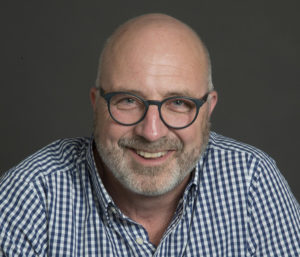 Despite disagreeing with the implementation plan of the Cooperative Baptist Fellowship’s Illumination Project, I found this summer’s General Assembly to be a breath of fresh air in multiple ways. Maybe it’s just where I hung out during the week, but there was a recurring theme echoing in my ears from breakfast to lunch to dinner and in between.
Despite disagreeing with the implementation plan of the Cooperative Baptist Fellowship’s Illumination Project, I found this summer’s General Assembly to be a breath of fresh air in multiple ways. Maybe it’s just where I hung out during the week, but there was a recurring theme echoing in my ears from breakfast to lunch to dinner and in between.
That theme is that the Spirit of God is up to something, and maybe we need to listen.
Several events celebrated the role of women not only in Baptist life generally but as ministers called by God in particular. Partially inspired by the #metoo movement, but also inspired by the very DNA of our Fellowship, we heard over and again stories of women who have persevered.
When CBF’s Carolyn Weatherford Crumpler Award was given to Pam Durso, executive director of Baptist Women in Ministry, she used the movie “Cars 3” to illustrate the journey she has been on from experiencing a childhood call to ministry to today. Just like the female car in the movie that aspires to become a race car, Pam said of being a pastor, “No one told me I could.” Only when others affirmed her and her God-given gifts could she see the possibility of living into the calling she had known all along.
Her testimony clearly echoed that of others in the room and at the assembly, who had found strength to answer the call through pioneering role models and encouraging families and mentors. Within the Fellowship, we’ve known this struggle existed, and yet we’ve had trouble moving from words of affirmation to acceptance of women as pastors. We’re getting better, but we’ve got a long way to go.
Imagine my astonishment, then, when attending the first-ever Affirming Network breakfast for CBF folks who support LGBTQ inclusion. This was an event planned for 60 people that mushroomed to 140 in attendance with others turned away for lack of space.
Every person who spoke at this event—from greeters to prayers to testifiers—identifies within the LGBTQ community. For once, the rest of us sat down and listened. And what we heard were eloquent voices of men and women called by God to serve the church. The testimonies were powerful and persuasive.
Every person who spoke gave compelling evidence of a call to vocational ministry, as did others in the room who did not speak. Which led me to ponder: What is God up to in this moment?
It is one thing for the church to deny full participation to Christians who identify as gay, lesbian, bisexual or transgender because of perceived biblical prohibitions. The answer too easily given is for these individuals to come to faith and change who they love or how they identify in gender.
But for men and women who are secure in their sexual orientation or gender identity to definitively testify to God calling them to service just as they are — that’s a game changer. Especially when it’s not just one or two random people but instead a pattern among people who never knew each other before. Perhaps it’s time for us to connect the dots and try to puzzle out what God’s Spirit is painting among us.
We must ask: If gay and lesbian Christians are an abomination to the Lord, why is the same Lord calling them to ministry? Could all these reporting the touch of God be deluded at the same time?
A popular conservative author years ago declared that if we want to experience God, Christians should find out where God is working in the world and then join God there. That’s good counsel for today, even though I’m certain that author would not have envisioned God working in the way I perceived at General Assembly.
The stakes of not listening to God are high. At the New Baptist Covenant luncheon, Noel Castellanos, a community developer in Chicago, told about moving into the troubled neighborhood he sought to serve. What he learned about presence is this: “The decision to stay now isn’t about saving the neighborhood; it’s about saving our souls.”
The same may be true for us as we pay attention to the neighborhoods where God is moving and has moved in. When we join God at work there, we just might save our own souls.
